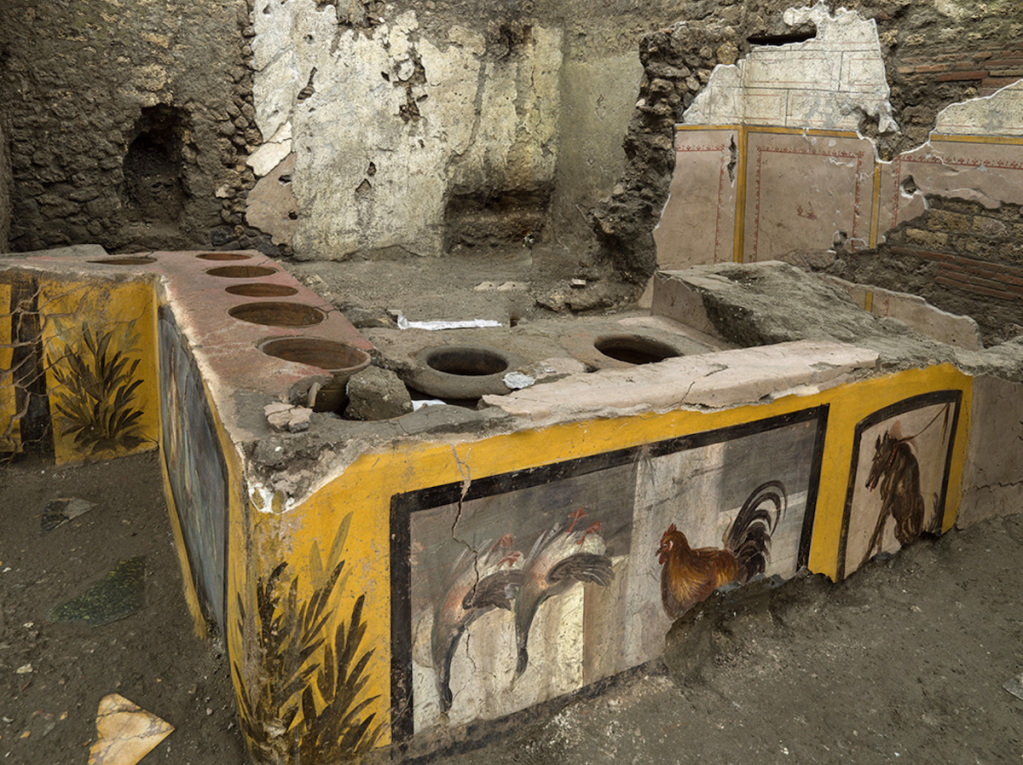A nearly 2,000-year-old ceramic vessel from Egypt has been found during conservation efforts in Pompeii, the Roman city destroyed when Mount Vesuvius erupted in 79 CE. The discovery, published by the Pompeii Archaeological Park’s online journal, offers a window into Egyptian influence on Roman culture of the time.
The situla, a bucket-shaped container, was uncovered during the conservation of the thermopolium of Regio V, once a working- and middle-class area of the city. Thermopolia were essentially fast-food restaurants where the non-elite inhabitants could pick up drinks and hot meals to consume outside. Over 80 thermopolia have been found in Pompeii alone.
This particular thermopolium, which was fully excavated and restored in 2020, is notable for the painted depictions of food animals and birds that adorn its walls. The shop consisted of an L-shaped service counter with jars for serving food embedded in its masonry top, a kitchen in the back stacked with vessels for storing food and drink, and an upstairs apartment for the restaurant’s manager or owner. A bathroom was just inside the door.
Decorated with reliefs of hunting scenes in the Egyptian style, the faience (self-glazing ceramic) pot, typical of those produced in Alexandria under Roman rule, was originally a luxury item. How it ended up in the kitchen of a street-food establishment remains a mystery, although it may have been part of a household shrine rather than being used as a storage container. It underscores, however, the Greco-Roman world’s integration of Egyptian cultural and religious forms, not only at the top of its society, but within its general population as well.
